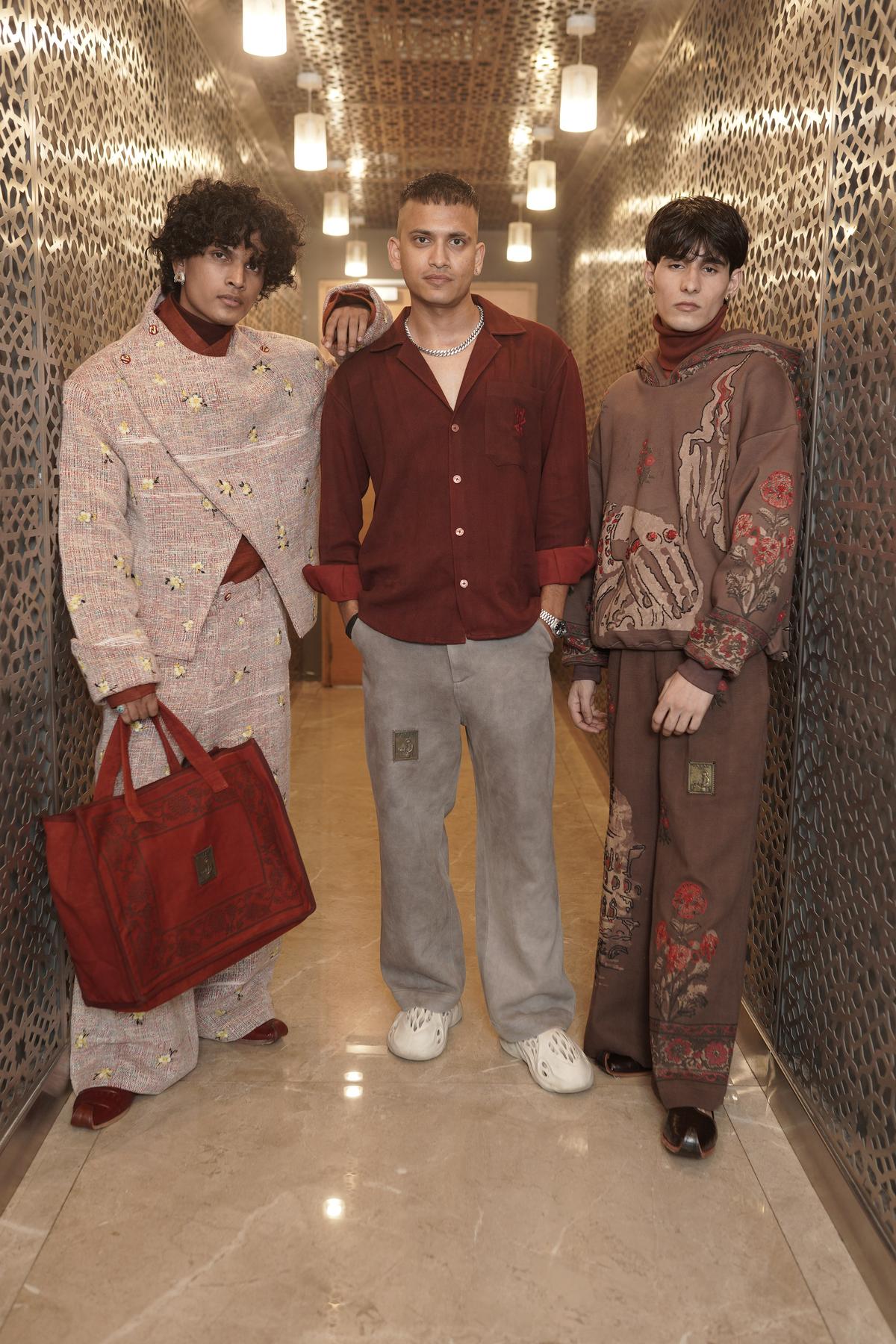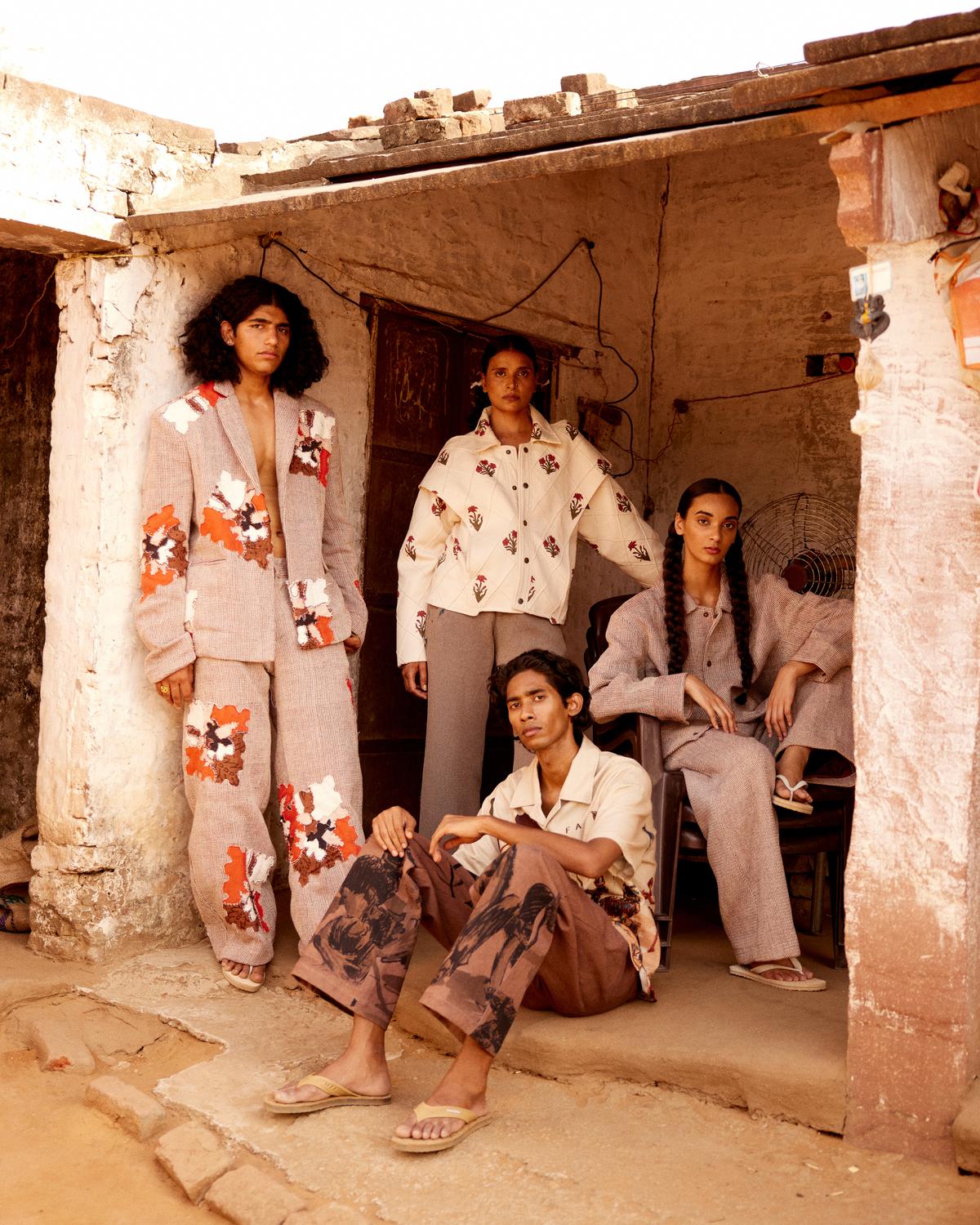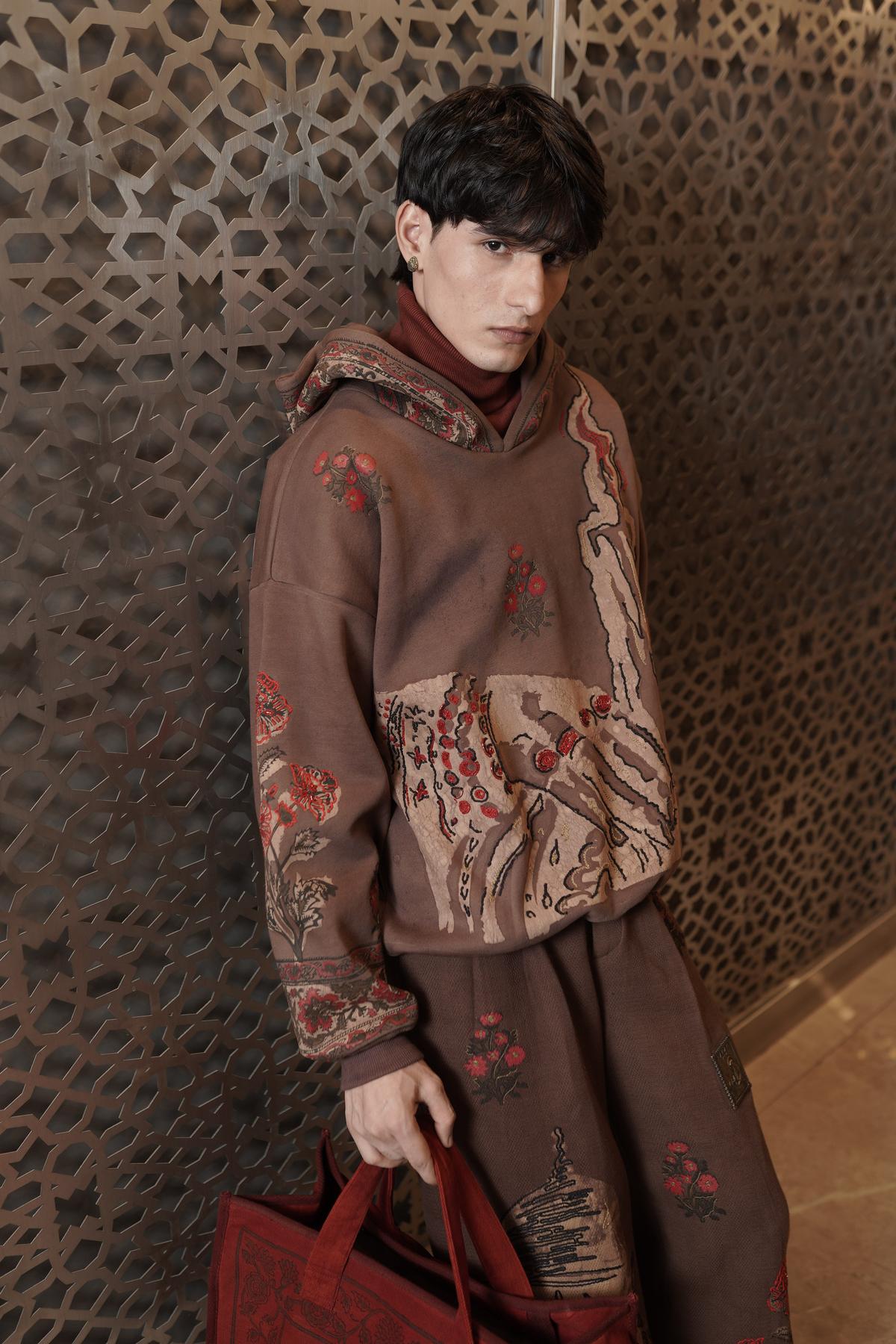Outfits from Farak’s Spring Summer 25 drop
| Photo Credit: Kewal Chholak
For 26-year-old Rishabh Kumar, venturing into the world of fashion was not part of his life plan. A national-level athlete (football, long jump, cricket, and triple jump), Rishabh returned to India in 2016 after his schooling in Dubai, and had to drop out of college due to financial issues at home. “I had a lot of free time, and was drawn towards fashion, particularly streetwear,” says Jaipur-based Rishabh. “I started visiting artisans and took three years to develop Farak, a brand that I officially launched in 2022 with Rajat Sharma (who comes with a background in exports) as co-founder,” says the entrepreneur who is a finalist at R|Elan Circular Design Challenge (CDC). Organised by Reliance Industries’ R|Elan (an initiative aimed at promoting sustainable and circular fashion practices) in partnership with the United Nations in India and Lakmē Fashion Week, the finals will be held at Lakmē Fashion Week x FDCI this October.

Rishabh Kumar (centre) with the two looks presented at the CDC competition
| Photo Credit:
Gulshan Rupraj
Known for their T-shirts, shirts, jackets, and bombers that spotlight craft techniques such as Bagru and dabu block printing, Farak is based on the idea of representing India’s artisan communities. “I did not have many vendors in Jaipur and decided to champion the craft the city is known for: block printing. Working with blocks isn’t possible on polyester so I switched to cotton,” he says, “I don’t have a background in fashion, but I wanted to ensure the artisans get credit for these crafts that have stood the test of time,” he says of the brand that spotlights upcycling techniques.

Outfits from an earlier collection at Farak
| Photo Credit:
Special Arrangement
Keeping India’s craft culture relevant for younger generations is something Rishabh stresses on. For the CDC competition, he introduced two looks: a dabu block-printed, upcycled hoodie and pant set, and a five-piece upcycled co-ord set. Sustainability came as a by-product. “For the latter, upcycled cotton fabric was cut into thin stripes and hand-spun into a woven yarn. This went into the fabric of the jacket and pants. The shirt was made with Assam’s ‘Ahimsa’ eri silk, and the turtleneck sleeveless tee was made from leftover surplus cotton T-shirt rib which was further hand-dyed using natural colours,” explains Rishabh, adding that these outfits were created with zero electricity.

The dabu blockprinted, upcycled hoodie and pant set presented for the CDC competition
| Photo Credit:
Gulshan Rupraj
For the finale, he plans to present womenswear, a category he launched this year. “I am designing an overcoat with the bagry and tie-dye techniques. Instead of going with traditional fusing, which uses polyester, we are creating a new technique that involves rice starch and resin on fabric,” says Rishabh, who is also working on his Autumn-Winter collection that will be launched in October.
An outfit from Farak’s Spring Summer 25 drop
| Photo Credit:
Kewal Chholak
The range, he says, will have a refined expression of Indian silhouettes and garments including womenswear inspired from the choli, blouse, Anarkali, to name a few. We are exploring fabrics such as pashmina, cashmere, silk and yak wool, alongside hand-knitted hoodies and jackets by the tribal communities of Gujarat, Assam.” In addition, Farak’s collaboration with footwear brand Comet that “features a 100% cotton, block-printed shoe” will also be launched in November.
Published – July 30, 2025 02:34 PM is








